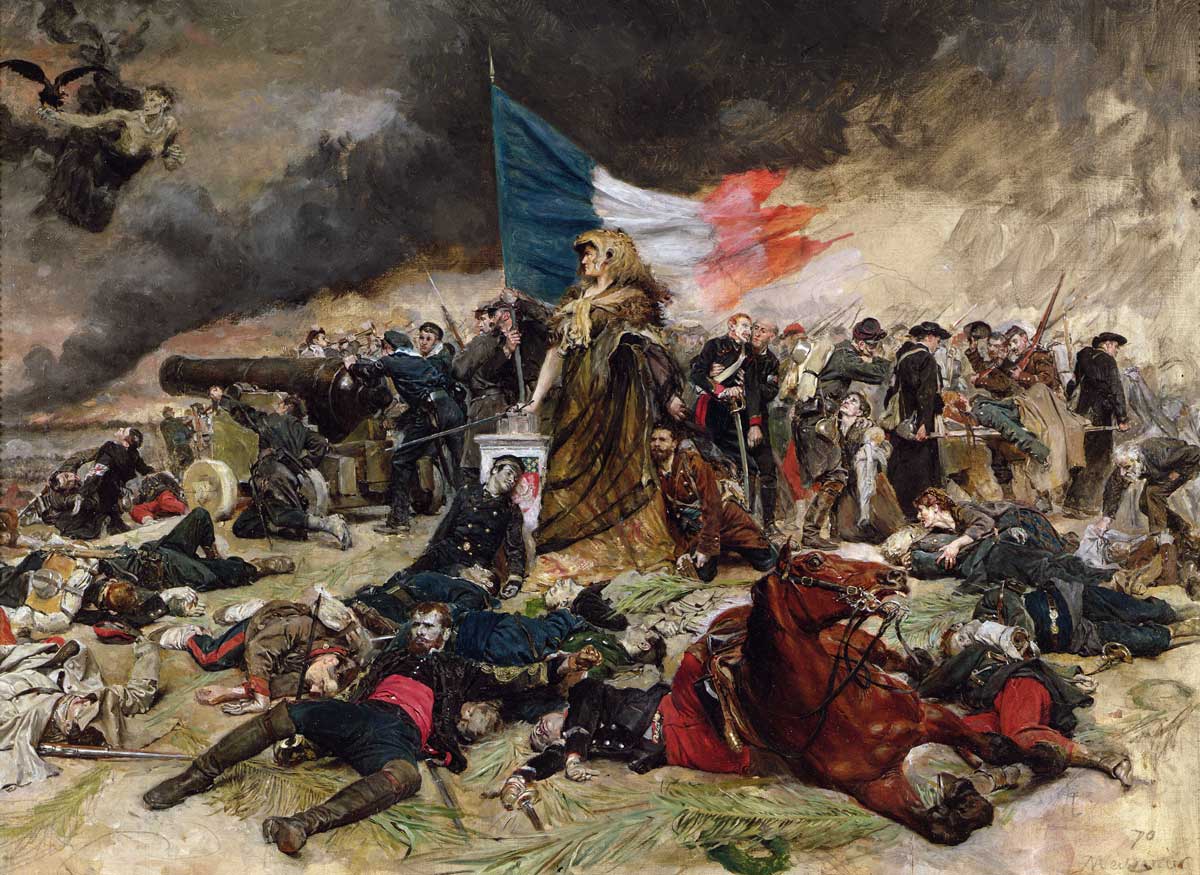Death and Sacrifice in the Franco-Prussian War - 1 minute read

The Franco-Prussian War was the most significant European conflict between the Napoleonic Wars and the First World War, involving around two million soldiers and resulting in the deaths of more than 180,000 men. Triggered by a dispute over the candidacy of the Prussian Hohenzollern dynasty to the Spanish throne in July 1870, the war saw the French emperor, Napoleon III, squaring up to the rising ambitions of Prussia and its minister-president Otto von Bismarck. By September, however, with French forces having suffered a series of defeats, the Second Empire, along with Napoleon III, had been replaced by a Third Republic, whose government vowed to continue the war to the bitter end. That end came after further French reverses culminated in Paris being starved into surrender on 28 January 1871. With Germany triumphant and its unification proclaimed at the Palace of Versailles on 18 January 1871, the war radically transformed the shape of Europe. It created a dominant new force at the heart of the continent and weakened French power significantly.
Source: History Today Feed